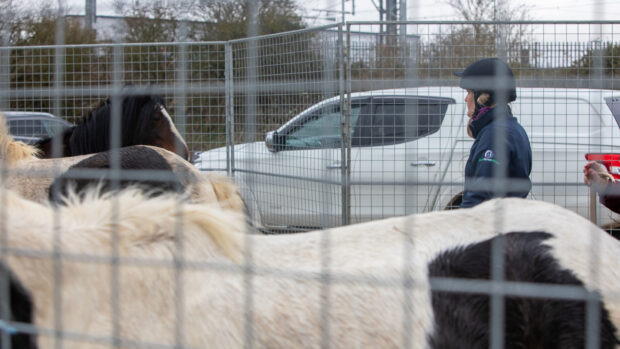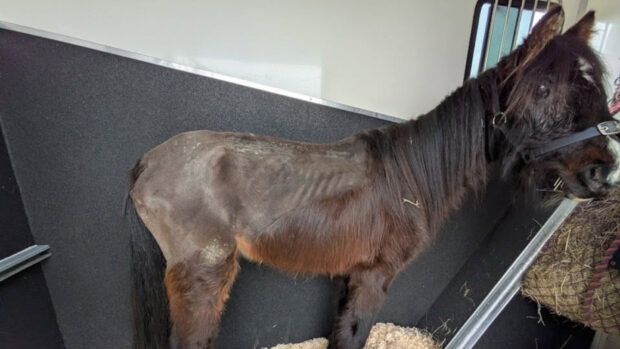Equine welfare charities are warning they may soon have to put healthy animals down – due to the “deluge” of abandoned horses.
Last week (Monday 18 June) charities including Redwings, the RSPCA attended a summit, to try to work out a strategy to tackle the growing number of horses being dumped.
In the past year the number of horses and pony that have come into the RSPCA care because of neglect and cruelty has doubled.
“We are being deluged with horses left, right and centre. It’s only by coming together that we can solve this,” said National Equine Welfare Council (NEWC) chairman, Nicolas de Brauwere.
“Is it acceptable on welfare grounds to euthanse perfectly healthy horses because there’s no home for them?
“In the ideal world I don’t think so but I don’t think we will have many choices if the numbers of horses coming in this winter are similar to last winter. We have got some very stark choices to make.”
Experts from Redwings the RSPCA and World Horse Welfare were in attendance, as well as representatives of 17 rescue centres, three governments, Local Authorities and universities.
A number of ways to tackle the horse crisis were discussed – including using birth control, improving and enforcing legislation and finding more homes.
“The grim picture of the horse crisis is there are about 3,000 horses and ponies across the UK which are currently at risk and all welfare groups are full to bursting,” said RSPCA chief inspector Cathy Hyde.
“Dealers are struggling to sell their horses. In some cases foals are being sold for as little as £1 each at markets so for unscrupulous dealers it’s easier and more profitable to let horses suffer and die than pay for their care.”
Suggestions included “creating a clear strategy” to make public and government aware of the problem.
How to make horses more “readily identifiable and linked to owners“.
Work with horse owners and breeders to prevent numbers growing further.
Mr de Brauwere added: “We have to find a way to weather this current storm and also find ways to prevent people from being able to grow their equine numbers out of control in good times in the knowledge that others will clean up their mess.
“When the mess involves the suffering of animals it is an unacceptable situation we must try to prevent in any way we can.”
This news story was first published in the current issue of H&H (28 June 2012)




